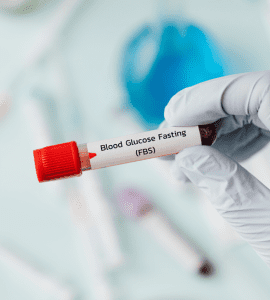In an era where chronic diseases are increasingly dominating global health discussions, hypertension, or high blood pressure, emerges as a critical concern. According to the World Health Organization, approximately 1.28 billion adults aged 30-79 years worldwide have hypertension, with fewer than 1 in 5 having it under control. Known as the "silent killer," hypertension often presents with no obvious symptoms but poses significant risks if left unmanaged.
Recognising Risk Factors
Hypertension can remain asymptomatic or manifest as vague symptoms such as nonspecific headaches. Key risk factors include a sedentary lifestyle, unhealthy diet, excess body weight, and genetic predisposition. Regular blood pressure monitoring is crucial for early detection, offering a first line of defence against potential cardiovascular complications.
Lifestyle Changes
The foundation of hypertension management lies in lifestyle modifications. Engaging in regular physical activity is paramount; the American Heart Association recommends at least 150 minutes of moderate-intensity aerobic activity per week. Additionally, if you are overweight or obese, losing even a small amount of weight can significantly reduce your blood pressure levels.
Dietary adjustments are equally important; consuming a diet low in sodium and rich in fruits, vegetables, and whole grains—highlighted by the DASH (Dietary Approaches to Stop Hypertension) diet—can markedly decrease blood pressure. Ensuring a good night’s sleep and managing stress levels are vital, as sleep deprivation and high stress can adversely affect blood pressure.
Quitting smoking and moderating alcohol intake are essential strategies that not only lower blood pressure but also boost overall cardiovascular health. Regular home monitoring of your blood pressure and consistent medical checkups help in keeping track of your health progress and facilitate timely adjustments to your treatment plan. These comprehensive lifestyle changes pave the way for improved health and a reduction in hypertension risks.
The Role of Supplements
In addition to lifestyle adjustments, certain supplements may aid in managing hypertension. Magnesium, which helps regulate blood pressure, can be beneficial, particularly when a person has a deficiency. Potassium helps balance the amount of sodium in cells, and not getting enough potassium can lead to high blood pressure. Omega-3 fatty acids, found in fish oil, have been shown to lower blood pressure slightly due to their anti-inflammatory properties. However, it's vital to consult with healthcare providers before beginning any supplement regimen to ensure it complements your health needs safely.
The Importance of Personalised Care
Individualised care plans are crucial in managing hypertension effectively. Regular consultations with healthcare professionals enable the adaptation of treatment plans as needed, enhancing the efficacy of both lifestyle modifications and medication. HealthDeliver provides a platform where individuals can access tailored healthcare guidance, supporting patients in navigating their health journeys.
Toward a Healthier, Hypertension-Free Future
Understanding and managing hypertension requires a committed approach to lifestyle changes, appropriate supplementation, and regular medical oversight. By taking proactive steps towards health, individuals at risk of or living with hypertension can significantly enhance their quality of life and reduce the risk of severe health complications. For those seeking support or more information, visiting HealthDeliver.Asia can be an excellent first step toward a healthier future.
This comprehensive approach to hypertension underscores the power of prevention and personalised care in combating one of the most prevalent and dangerous health challenges of our time.











